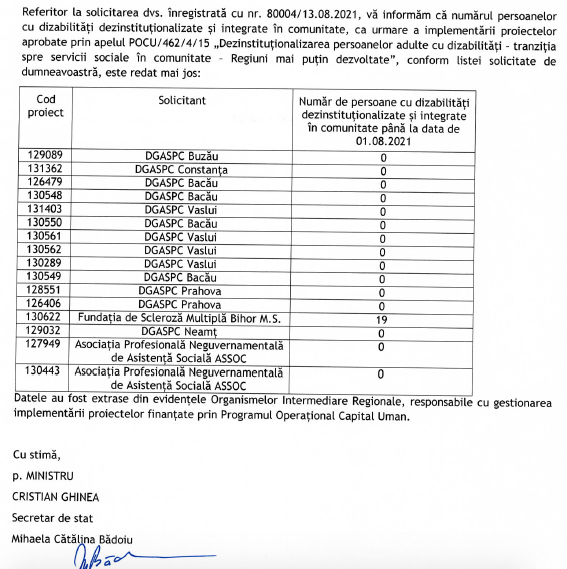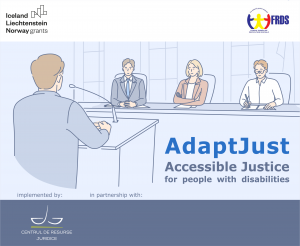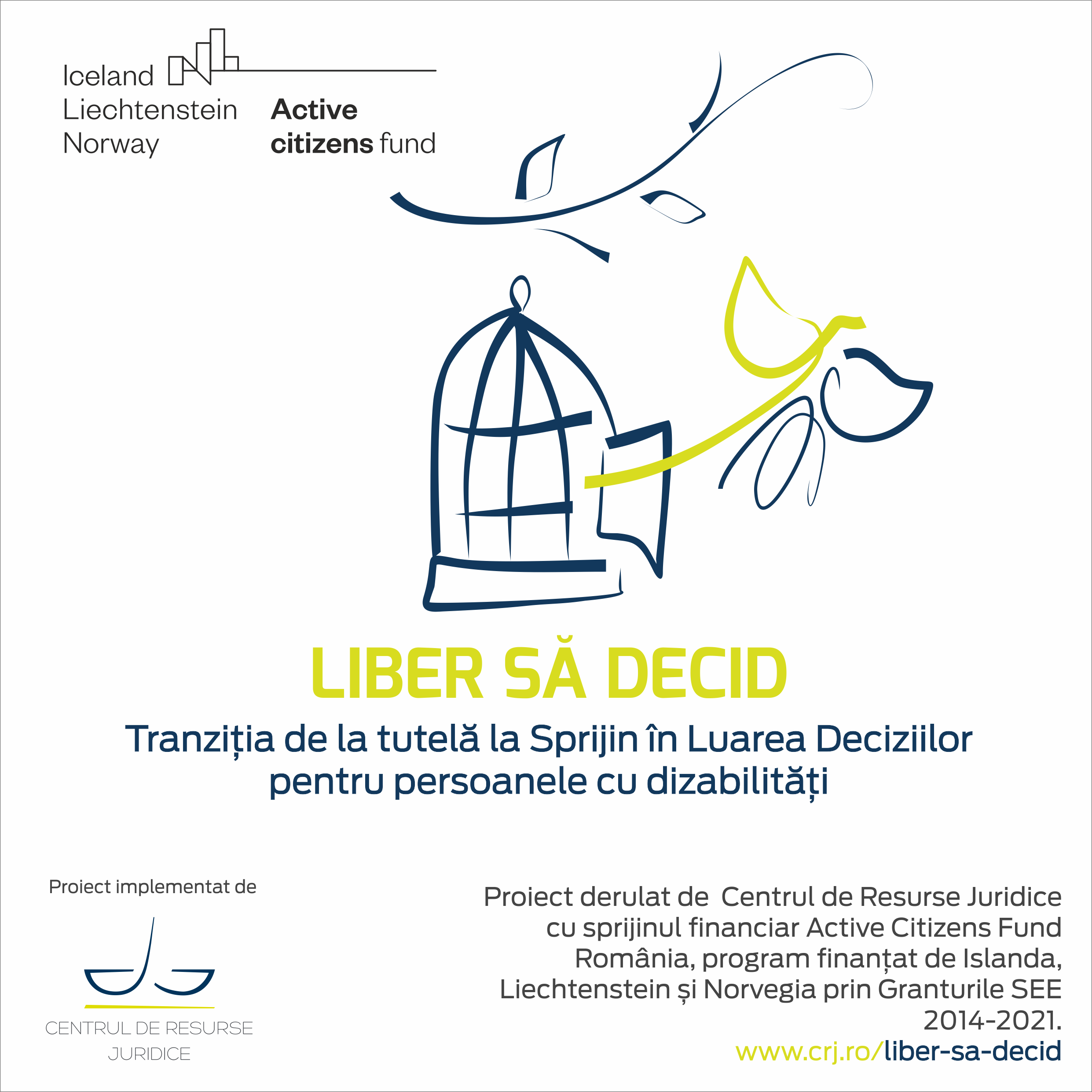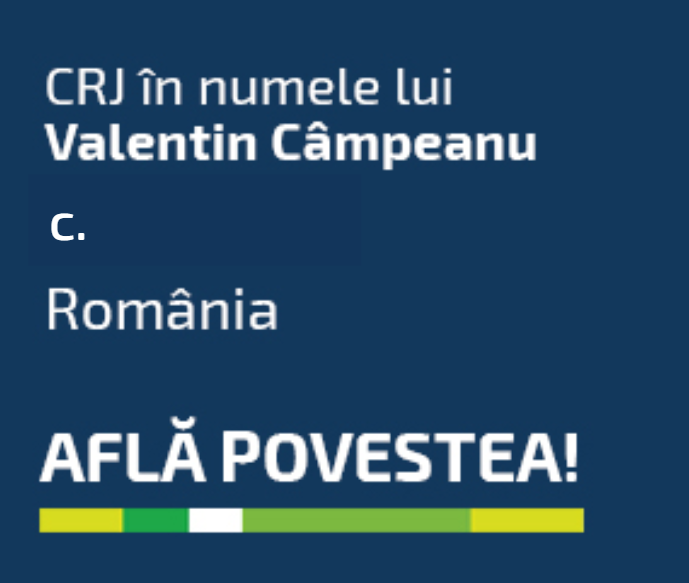UPDATE 2.11.2021: After countless addresses and the submission of a prior complaint to the Prime Minister’s Office, The Ministry of European Investments and Projects (MIPE) confirms what CLR has warned about in all its requests and position papers: “the Commission will not accept the construction of sheltered housing and small group family homes”.
CLR Requests/observations:
➢ CLR considers that investments such as family-type homes for children with disabilities and sheltered housing represent a form of segregation and discrimination.
➢ CLR proposes replacing these initiatives with interventions targeting services in the community – not only in county capitals, but also in municipalities – foster parents and incentives for families, the creation of mobile teams to reach rural areas, social housing for institutionalised people with disabilities, appropriate specialist rehabilitation centres in each urban/municipal environment, personal assistants.
The document shows that: “MIPE tried to moderate the disagreement, in order to be able to take a funding decision through POIDS , but the solution came from a third party, namely the European Commission, via correspondence dated 27 September 2021 that it does not agree with the process of deinstitutionalization through sheltered housing (neither for 12 persons nor for 6 persons). Consequently, the FONPC proposal has not been taken into account in the revised version of the POIDS.”
The full correspondence with MIPE can be consulted here, including the answer above (MIPE document – English version), to which CLR has already returned with the request to provide us with the correspondence between MIPE and the European Commission. CLR also requested that the paragraphs relating to the discussions at the August 10 meeting of the POIDS Committee be corrected and supplemented. (CLR request, English version).
______________________________________________________
The Center for Legal Resources has received an invitation to participate in the Priority Setting Committee for the Operational Programme for Inclusion and Social Dignity (POIDS) which is currently being set up by the Ministry of European Investments and Projects. We have pointed out – during the meetings of the Committee that have taken place so far (August 2020 – see the document here and August 2021), as well as in the correspondence we have with the Ministry and in the written comments we made at its request – the danger of European funds being directed, just as it happened during previous administrations, specifically to the components that the European Commission and the UN Committee on the Rights of Persons with Disabilities warn against spending money on.
Specifically, CLR issued the following:
- As we have already stated (August 2020 and meeting on 10 August 2021) and in accordance with the National Authority for Persons with Disabilities, Child Protection and Adoptions (ANDPDCA) Diagnosis Report published in December 2020, that confirms: the existing legislation and standards of sheltered housing (LP) limit the autonomy of beneficiaries and in practice, sheltered housing can introduce another type of institutional care. Therefore, they are not in line with Romania’s obligations under the UN Convention on the Rights of Persons with Disabilities. This states that independent living in the community can only take place outside residential institutions of any type, and sheltered housing is considered a smaller residential type of institution.
- Moreover, the experience from the 2014-2020 programming period shows that money is allocated to these LPs with day care centres (CZ), and for the last 3 years, in most of the locations, not even the foundations of these buildings have been laid from POR funding (not to mention the POCU funded community services), while approx. 18,000 people either die or are waiting in institutions while their lives are deteriorating. This is a well known fact at your ministry level, at least regarding the POCUallocations for deinstitutionalisation, as seen in the response below:

The most recent case, very much present in the media, is that of CRRNPH Călinești – Prahova, where an elderly disabled man was beaten and killed by a nurse; his brother, a beneficiary of CRRNPH Călinești is still in hospital. CLR is monitoring the situation (https://s9.ro/1gm6) and wants an urgent meeting with the Minister of Investments and European Projects to discuss this case as well as other inconsistencies regarding the construction of LP with CZ and also the stagnation of the deinstitutionalization process from European funds.
3. At the same time, as mentioned, sheltered housing is not a solution for independent living. We want to emphasize again that the accommodations created for people with disabilities should be community-based services, with personal assistants, social housing, subsidised rents and/or purchased housing, unrestricted access to rehabilitation services in the community and not segregation into housing-type services with a day centre. We noted the extent of social housing in the programme: to what extent does it target people with disabilities? Are we talking about building or renting/renovating existing social housing?
As stated in the ANDPDCA Diagnosis: “Social housing can be seen as a tool to support the social inclusion of people with disabilities, by creating a safety net of security and stability while ensuring access to adequate housing.“
The role of personal assistants should also be strengthened as the most important service for independent living.
4. The presentations that happened during the August 2020 and August 2021 meetings do not refer to the Needs Analysis of people in residential institutions, an analysis of the availability of social services and infrastructure in the community and how the Ministry’s experts arrived at the actions in Priorities 2, 5, 6, in particular the outcome of 47 mobile teams and 47 legal aid teams, the decision on sheltered housing etc. So is there a rationale for these actions based on the needs of people in institutions and a formula for calculating these resources? How were the direct beneficiaries of these measures, i.e. people with disabilities in institutions, involved and consulted and what options were they offered before the decision on these actions? Is there an agreed upon document at Ministry level to this effect? To what extent will the funding of 47 legal assistance teams (! attention, not services, but two people hired for one county!) ensure the funding of decision support services that will replace the banning measure declared unconstitutional by the CCR decision of June 2020? These exact observations and proposals to amend the form of POIDS 2020 – were submitted by CLR in a response document in August 2020 (also attached here).
5. The CRPD Committee has stated on several occasions that independent living cannot be ensured in institutions, regardless of their size. Apart from General Comment No. 5, where States Parties are asked to ensure that funds are not spent on maintenance/renovation/construction of any form of institution or institutionalisation, the CRPD Committee has also reiterated this in its 2014 comments to the European Union as well as to Member States over the years.
As for the European Union, the CRPD Committee recommended “to strengthen the monitoring of the use of European Structural and Investment Funds to ensure that they are used strictly for the development of support services for people with disabilities in local communities and not for the redevelopment or expansion of institutions [and] to suspend, withdraw and recover payments if the obligation to respect fundamental rights is violated.“
We would also like to inform you that the UN Special Rapporteur on the rights of persons with disabilities and the Special Rapporteur on adequate housing as a component of the right to an adequate standard of living, as well as the right to non-discrimination, have sent on this matter a letter to the European Commission in May 2020. This raises red flags about the use of European structural and investment funds to invest in existing institutions or to replace large-scale institutions with smaller ones (i.e. trans-institutionalisation). This letter also refers to projects in Romania under P.O.R/8/8.1/8.3/B/1. (Source: https://s9.ro/1gm5)
In several reports and concluding observations for States Parties prepared by the CRPD Committee, some of the following elements are recurrent: concerns about the fact that the investments aim at transferring residents from large institutions to smaller clusters of houses/housing (which is contrary to the provisions of Article 19, as stated in General Comment No. 5), the call to stop investing in building/renovating institutions (including with EU funds) and to invest in independent living services in the community, and the call for review and/or development of deinstitutionalisation strategies/national strategies for independent living to bring them in line with the requirements of the CRPD. These recommendations are applicable for Romania both to investments in sheltered housing for adults and family-type homes for children. Another diagnosis of abuse in family homes (also financed by EU funds) is prepared by Disability Rights International for Bulgaria.
Considering these aspects, we respectfully request from, Minister, to meet with us as soon as possible in reference to the state of the institutions and actions financed by European funds.
Georgiana Pascu
Centre for Legal Resources / programme manager
gpascu@crj.ro / tel. 0729 881 159
____
FULL CORRESPONDENCE CRJ – MIPE:
- Doc 01 – 07 07 2020 MIPE aprobare candidatura CRJ
- Doc 01a – 25 08 2020 raspuns-CRJ-catre-MFE
- Doc 02 – 12 08 2021 Solicitare 544 CRJ to MFE
- Doc 03 – 02 09 2021 Solicitare 544 CRJ to MIPE
- Doc 04 – 10 09 2021 544 CRJ to MIPE
- Doc 05 – 15 09 2021 544 CRJ to MIPE
- Doc 06 – 15 09 2021 MIPE to CRJ
- Doc 07 – 28 09 2021 MIPE to CRJ
- Doc 08 – 05 10 2021 MIPE to CRJ
- Doc 09 – 06 10 2021 Reclamatia CRJ
- Doc 10 – 01 11 2021 MIPE Raspuns reclamatie administrativa
- Doc 11 – 02 11 2021 MIPE Document _Proces consultare POIDS – The Ministry of European Investments and Projects (MIPE) confirms what CLR has warned about in all its requests and position papers: the Commission will not accept the construction of sheltered housing and small group family homes. MIPE: “the measure has not been included in the updated version of Operational Programme for Inclusion and Social Dignity (POIDS), following the negative feedback from the European Commission (September 2021).” // Doc 11 – ENGLISH VERSION: Doc_12 – POIDS_doc_ENversion
- Doc 12 – 05 11 2021 revenire si observatii CRJ to MIPE (RO)
Doc 12 – ENGLISH VERSION: HERE 05 11 2021 CRJ To MEIP - Doc 13 18 11 2021 Adresa raspuns MIPE to CRJ






